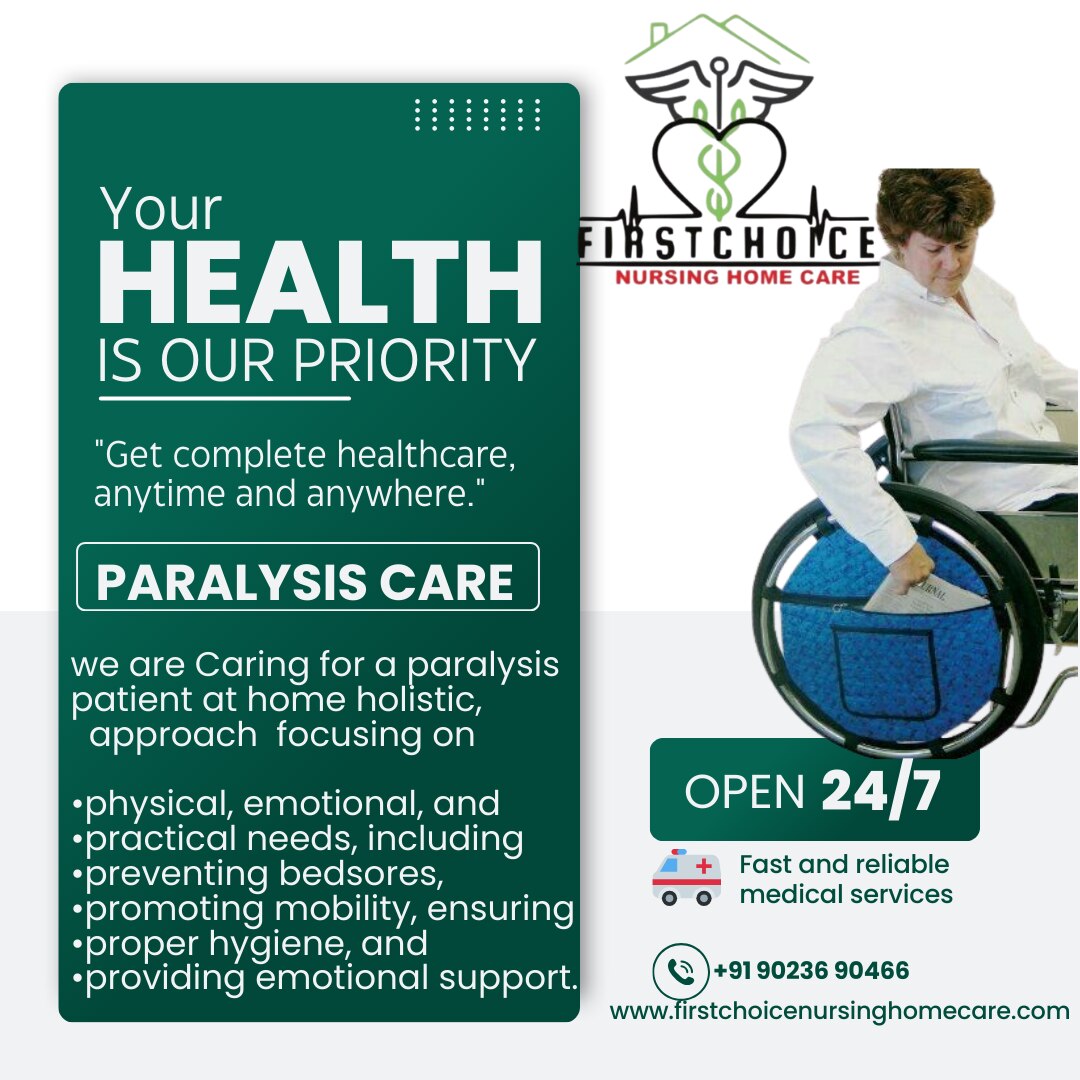Description
Paralysis care at home requires specialized attention to ensure the individual's physical and emotional well-being. Here are some key aspects: *Care Services:* 1. *Personal care*: Assistance with bathing, grooming, dressing, and toileting. 2. *Mobility assistance*: Helping with transfers, positioning, and exercise. 3. *Medication management*: Reminding and assisting with medication administration. 4. *Physical therapy*: Exercises to maintain muscle strength and mobility. 5. *Nutrition and hydration*: Ensuring adequate nutrition and hydration. *Care Challenges:* 1. *Limited mobility*: Risk of pressure sores, muscle atrophy, and joint stiffness. 2. *Bladder and bowel management*: Assistance with catheterization and bowel care. 3. *Respiratory care*: Assistance with breathing exercises and oxygen therapy. 4. *Emotional support*: Providing emotional support and companionship. *Caregiver Support:* 1. *Training and education*: Caregivers should receive training on paralysis care. 2. *Respite care*: Regular breaks for caregivers to prevent burnout. 3. *Emotional support*: Support for caregivers to manage stress and emotional challenges. *Home Modifications:* 1. *Accessibility*: Modifying the home to ensure accessibility and safety. 2. *Equipment*: Installing equipment such as wheelchairs, walkers, and grab bars.


